
On that foundation, the 15th National Assembly is continuing to write the history of "convergence and breakthrough", affirming its central role in creating modern institutions, accompanying the Government to pave the way for an era of strong growth, in which each law is a commitment to the future and each decision is a measure of the people's trust.
Panorama of the first session of the first National Assembly, March 2, 1946 at the Hanoi Opera House.

After amending the Constitution, the 15th National Assembly has shown a clear shift in legislative thinking: from "making laws to control" to "making laws to create". The emphasis is not only on the number of documents, but also on the way policies are designed to liberate resources, improve productivity, control power and ensure effective implementation.
The laws: Land (amended), Housing, Government Organization and Local Government (amended), Digital Data… have created a synchronous legal framework for the country's acceleration phase.
At the parliament, many delegates emphasized that institutions are the soft infrastructure of development. According to Dr. Nguyen Si Dung, former Deputy Head of the National Assembly Office, the key point of a modern National Assembly is to turn the law into a national development capacity, placing people and businesses at the center of the institutional value chain - from planning, legislation, implementation to supervision.
Therefore, each law issued during this term is designed according to the principles of clear authority, clear responsibility, clear sanctions and clear data to ensure transparency, feasibility and sustainability.

Delegate Bui Hoai Son - Standing Member of the National Assembly's Committee on Culture and Education - repeatedly emphasized the concept of "policy culture" - that is, the spirit of service, daring to take responsibility and daring to correct mistakes in implementation. According to him, reform does not only lie in the wording of the law, but also in public service behavior: eliminating the "ask - give" mechanism, ending the fear of mistakes, and shifting from a management mindset to a service mindset.
When the "policy culture" changes, the law can "live" and the bottlenecks can be truly removed. It is the movement in the awareness of the enforcement team that has created the widespread influence of the Dien Hong parliamentary spirit today.
From the central to local levels, that spirit has been transformed into concrete actions. After the National Assembly passed the fundamental laws, many provinces and cities have proactively implemented the new model.
In Ho Chi Minh City, the "two-level urban government" model has been effectively operated, helping to shorten the time for approving investment projects, unleashing social resources and creating a favorable environment for innovation. Quang Ninh has become a bright spot in administrative reform with the "regional one-stop shop" model, allowing businesses to complete inter-provincial investment procedures in just a few days.
Da Nang accelerates digital transformation, 92% of district-level administrative records are processed online, affirming its pioneering position in digital government. Meanwhile, Ninh Binh shows that streamlining the apparatus does not reduce service efficiency but also saves hundreds of billions of dong in budget each year.
These examples affirm that when institutions are properly operated, the law will no longer be a barrier but become a driving force for development.

Delegates at Dien Hong Hall, National Assembly.

In the 80 years of formation and development of the Vietnamese National Assembly, no term has left such a strong institutional mark as the 15th term. Amending the Constitution, restructuring administrative units, promulgating a series of fundamental laws - all of which form a series of once-in-a-century policy decisions, not only innovating legal techniques but also reshaping the national development space, allocating resources more effectively and strengthening control over power.
According to Prof. Dr. Nguyen Xuan Thang - Politburo member, Director of the Ho Chi Minh National Academy of Politics, Chairman of the Central Theoretical Council, the development of laws must be done early and in advance to pave the way for development and liberate all resources, especially those of the people.
He emphasized the need to promote decentralization and delegation of power in the spirit of "locality decides, locality does, locality is responsible, the Central Government, Government, and National Assembly play a constructive role" and "strengthen supervision, inspection, urging, and removing difficulties and obstacles".

In fact, the 15th National Assembly not only promulgates laws but also creates mechanisms for them to "live". Each thematic supervision session and each question-and-answer session is a review of the effectiveness of implementation.
The Law and Justice Committee examines the post-reorganization government organization model; the Economic and Financial Committee assesses the impact of investment decentralization; the Science, Technology and Environment Committee monitors the implementation of the Digital Data Law; the Culture and Social Affairs Committee monitors social security policies. The synchronization between legislation and supervision creates a closed policy process - both making laws and self-controlling laws, ensuring high practicality and adaptability.
Along with that, decisions on education, culture, and social security all demonstrate the spirit of an active National Assembly, daring to take responsibility for difficult issues.
As National Assembly Deputy Bui Hoai Son once said: " Each law is a commitment to innovation. The 15th National Assembly dares to open the way, dares to repair the way, dares to go to the end of reforms for the benefit of the people. That mindset of 'action goes hand in hand with responsibility' is the core of the Dien Hong spirit today ."

If Dien Hong in the past was a conference of decisive battle cries, then Dien Hong today is a conference of wisdom, consensus and aspiration for development. The 15th National Assembly is not only the highest state power organ, but also the "institutional guide" - where the will of the Party, the voice of the People and the responsibility of the State converge.
At the thinking level, the National Assembly has redefined the quality of the law: not only correct, sufficient and constitutional, but also measured by the effectiveness of life, by the level of people's satisfaction, by the reliability of the market and the competitiveness of the country.
At the methodological level, the National Assembly strengthens the closed policy cycle: good legislation, sharp explanation and supervision, and timely adjustment. This cycle is only meaningful when associated with a culture of responsibility - words go hand in hand with actions, actions go hand in hand with responsibility, and every policy failure is a lesson to be corrected quickly and correctly.
At the social level, the spirit of constructive consensus becomes a contract of trust between the State and the People: law protects initiative, transparency protects trust, and supervision protects fairness.
That is Dien Hong 4.0 - where the voice of the digital age blends with the spirit of a thousand years, where every decision is linked to the interests of the people and every vote is a symbol of trust.
Internationally, many prestigious organizations highly appreciate Vietnam's institutional improvement momentum. The World Bank (WB) report in September 2025 confirmed that Vietnam is one of the three countries with the fastest institutional improvement speed in Southeast Asia, while the United Nations Development Program (UNDP) recorded the highest score in the past 10 years in the Governance and Public Administration Efficiency (GOV-Efficiency).
However, the most important measure is not rankings, but domestic trust - trust built by concrete changes: streamlined administrative procedures, transparent public data, friendly public services and a government close to the people, for the people.

General Secretary To Lam speaks at the discussion session of the 9th Session of the 15th National Assembly.
From "decisive battle" to "decision", from the will of the nation to the will of the parliament is a journey to affirm the power of trust and consensus. The 15th National Assembly has been creating an institutional foundation for Vietnam in the digital age, linking legal reform with people's happiness, linking parliamentary action with the vitality of life.
From the Dien Hong Parliament today, the light of wisdom and consensus is spreading, awakening the aspiration of a nation to rise up, affirming that institutional reform is the shortest path to prosperity.

Source: https://vtcnews.vn/dau-an-lap-phap-mo-duong-cho-ky-nguyen-vuon-minh-ar984784.html






![[Photo] Prime Minister Pham Minh Chinh receives the delegation of the Semiconductor Manufacturing International (SEMI)](https://vphoto.vietnam.vn/thumb/1200x675/vietnam/resource/IMAGE/2025/11/06/1762434628831_dsc-0219-jpg.webp)
![[Photo] Closing of the 14th Conference of the 13th Party Central Committee](https://vphoto.vietnam.vn/thumb/1200x675/vietnam/resource/IMAGE/2025/11/06/1762404919012_a1-bnd-5975-5183-jpg.webp)





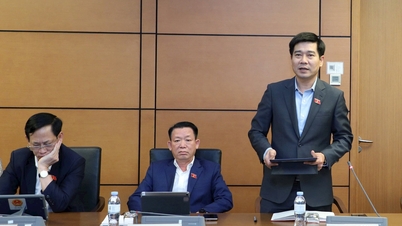



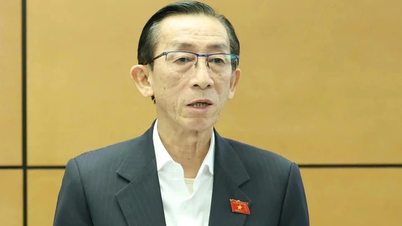
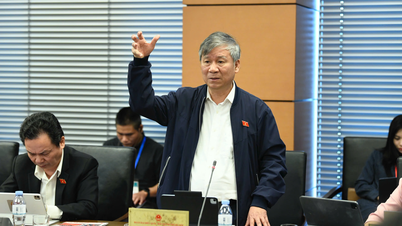
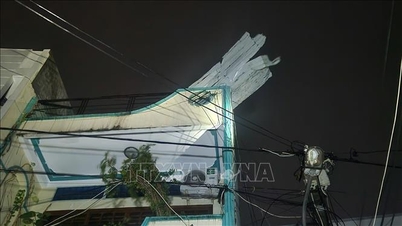













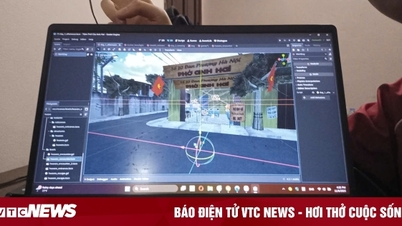




















































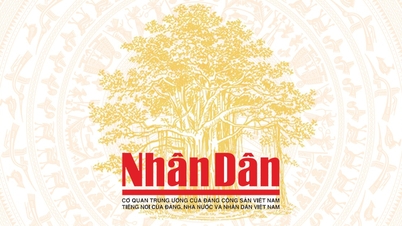
















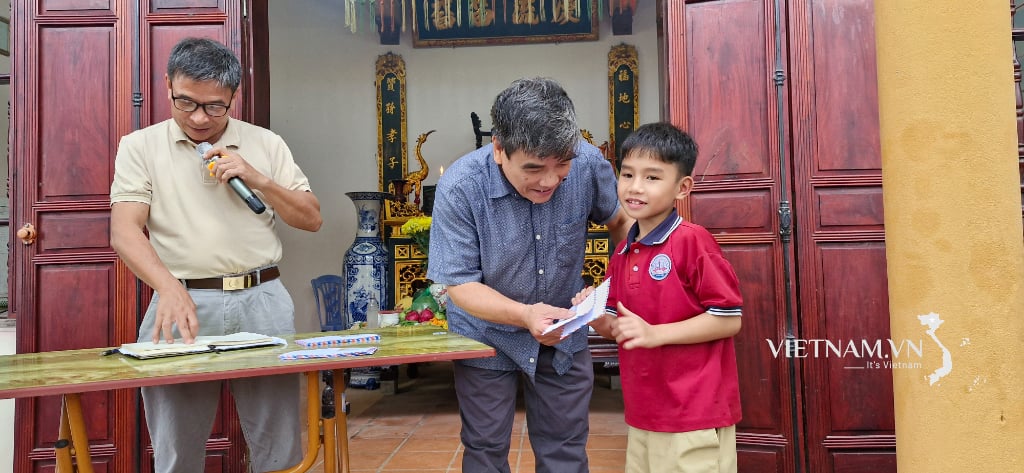


Comment (0)